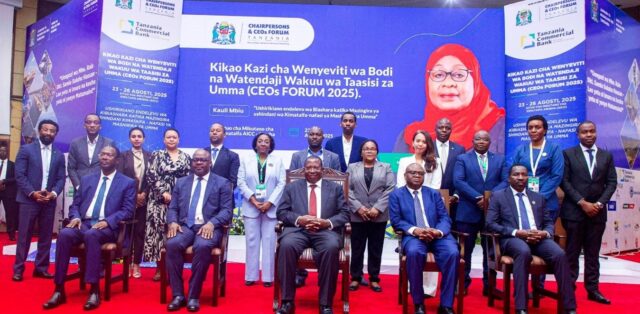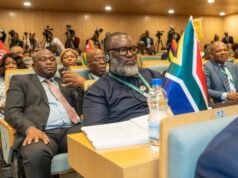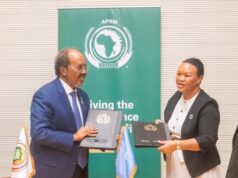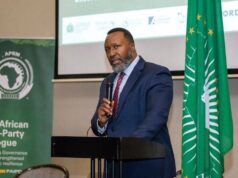The evolving role of State-Owned Enterprises (SOEs) took centre stage at the African Peer Review Mechanism (APRM) continental secretariat 2025 Chairpersons and Chief Executive Officers (CEOs) Forum held in Arusha, Tanzania recently.
The forum was held under the theme: Creating Sustainable Business Synergies in a Globally Competitive Environment: The Role of SOEs. The gathering brought senior executives, policymakers, and governance experts from Tanzania under one roof to explore the evolving role of SOEs in the continent’s economic transformation.
The Chief Executive Officer APRM Ambassador Marie-Antoinette Rose Quatre used the platform to emphasize about the strategic importance of Africa’s SOEs in advancing regional integration, driving intra-African trade, and positioning the continent competitively in the global financial landscape.
“Good governance is not a burden. It is a competitive advantage. It lowers the cost of borrowing, improves credit ratings, attracts partnerships, and enhances the credibility of our enterprises in global markets,” she said. Ms. Ejigayhu Tefera, from the APRM’s Directorate of Governance and Specialised Reporting, delivered a presentation that focused on the forthcoming African Credit Rating Agency (AfCRA).
Set to launch by the end of 2025, AfCRA aims to provide independent, Africa-led credit assessments for sovereigns, sub-sovereigns, and corporates. The presentation sparked a dynamic discussion on APRM’s role in shaping governance on the continent and Africa’s readiness to shape its financial future.
In addition to AfCRA, the APRM showcased other flagship initiatives, including:
- The AU Corporate Governance Guidelines – a practical framework to support accountability, transparency, and efficiency in SOE operations; and
- The African SOE Network – a platform for peer learning, knowledge exchange, and cross-border collaboration among SOEs.
The forum also highlighted the increasing influence of African institutions in global reform platforms such as the G20 and International Monetary Fund (IMF). With shifting dynamics in international finance, trade, and technology, speakers reiterated the need for African-driven solutions and governance tools to navigate the evolving global landscape.









